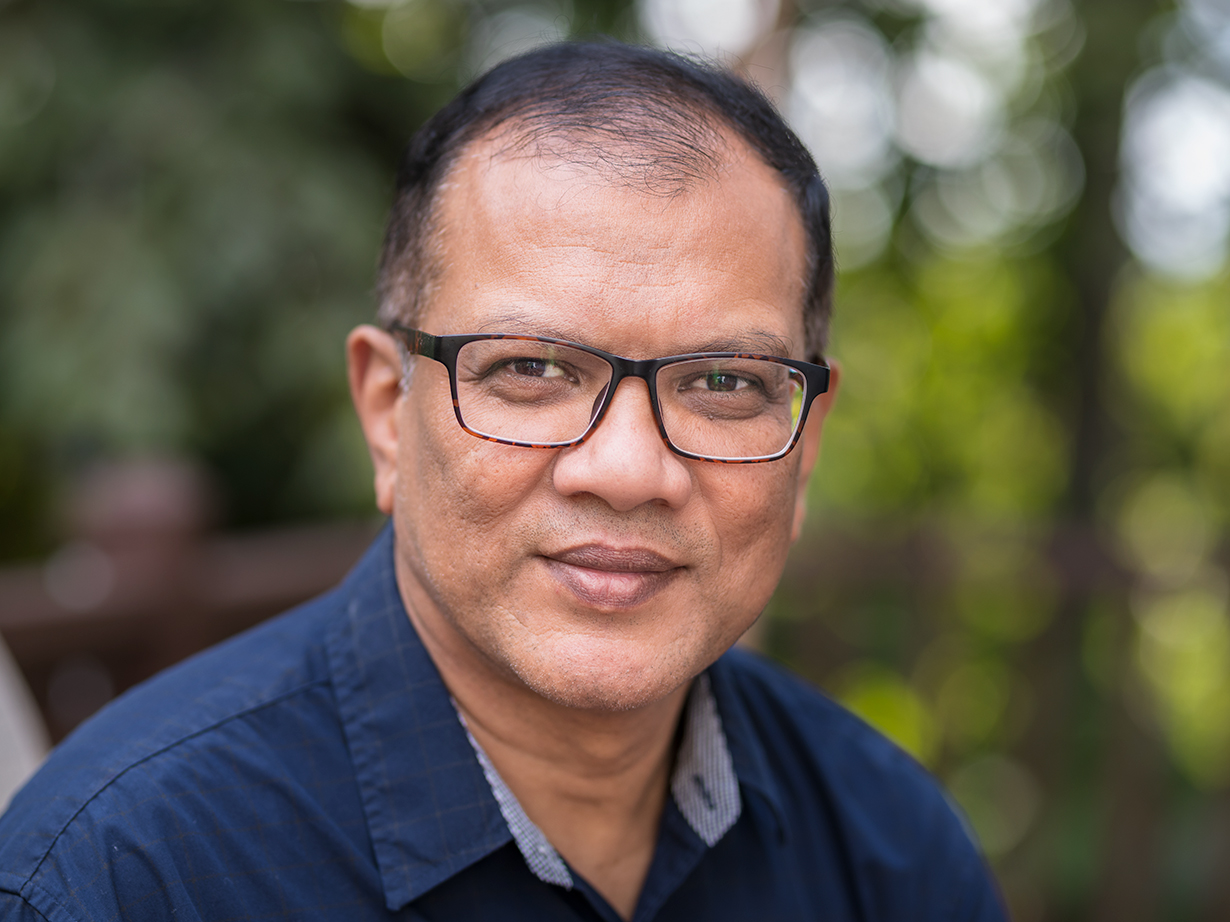For the first 18 years of his life, Reza Uddin was a citizen of Burma, now officially known as Myanmar. And then, suddenly, he was not. That’s because Uddin is Rohingya, and in 1982, the Burmese government began denying citizenship to its Rohingya population.
Uddin was born in 1964 to a prominent family in a township in the Rakhine state called Maungdaw. His father, an English teacher, had worked as an interpreter for the British during World War II. His family owned a pharmacy in town, as well as farmland in the country. Like most Rohingya in Maungdaw, Uddin’s Muslim family lived side-by-side with Buddhists. “The neighborhood that I grew up in is a combination of the Rohingya Muslims and Rakhine Buddhists, so we were kind of mixed. We had a lot of friends– Bhurmese friends, Buddhist friends, Rohingya friends,” he remembers.
It wasn’t until Uddin applied to college that he began to feel the effects of the Citizenship Law. Buddhists were automatically granted the required National Registration Cards, but he had to use personal connections and a bribe to get a card.
While Uddin was in college, the government started taking land from the Rohingya in his hometown and redistributing it to Buddhists. Active in student movements for Rohingya rights, Uddin avoided visiting his home village. The one time he did return there, a special unit of the police interrogated him and instructed him to report to them everyday. At the end of the trip, his father advised him to start looking for opportunities in other countries and instructed him never to come back home.
Uddin followed both pieces of his father’s advice: He applied for a student visa in the United States, and would never again see his hometown. In 1993, he moved to Pendleton, Ore., where his brother was working as a plant pathologist, and enrolled at Blue Mountain Community College. A year after his arrival, his brother accepted a job at the University of Georgia, leaving Uddin to fend for himself.
With no means of transportation, he walked to class everyday and the town took notice. “There was a whole front page article on me. Asking where I was from, how I ended up here… it was very curious for them,” he explains. After the article was published, local librarians started showing up at his house to give him a ride.
When Uddin’s visa expired, one of the librarians from his college in Pendleton drove him to Portland to speak with an immigration lawyer. Later, he was told that the librarian had paid the retainer fee: “I saw he had already written the check for me for $1,500. He never told me,” says Uddin. Only ten days after submitting his application, he was granted asylum.
Uddin transferred to Portland State University in 1995, and graduated with a degree in chemistry. While at PSU, he was hired as a lab technician for an environmental company in Portland, where he worked for ten years. Today, he lives in West Linn with his two daughters and his wife, who is also from Myanmar. The couple run a gas station in Salem. In 2017, Uddin founded Friends of the Rohingya, an organization that helps support Rohingya refugees. Within the first year, the group raised more than $140,000.
Although Uddin has never returned to his hometown, he has been back to Myanmar a handful of times: he returned to the capital city of Yangon (formerly known as Rangoon) for his wedding in 2002, a ceremony his family wasn’t allowed to attend, and has visited the refugee camps in Bangladesh that house hundreds of thousands of Rohingya refugees.
As for his hometown: Maungdaw Township bore the brunt of much of the violence launched by Myanmar government forces against the Rohingya community in the Rakhine state. In just one month, beginning Aug. 25, 2017, United Nations figures show that 288 villages were partially or entirely destroyed, their residents killed or forced to flee to neighboring Bangladesh. Calling the plight of the Rohingya the world’s fastest growing refugee crisis, the U.N. has labeled the government action against the Rohingya “a textbook example of ethnic cleansing.”
“All the villages that people left, some of them are already bulldozed and wiped out, or they are growing, and animals from the jungle, like tigers and snakes, are there,” Uddin said. “The houses are all razed down to the ground.”
Without overwhelming international support, nothing will change in Myanmar, according to Uddin. Through his activism, he tries to spread awareness: “We have to keep the spotlight on this tragic situation,” he says, “Otherwise it will fade out.”


One thought on “Once Home, Now a Jungle”
very interesting long journey history i think every Rohingya who are over overseas has the same or similar travel stories of history
Comments are closed.